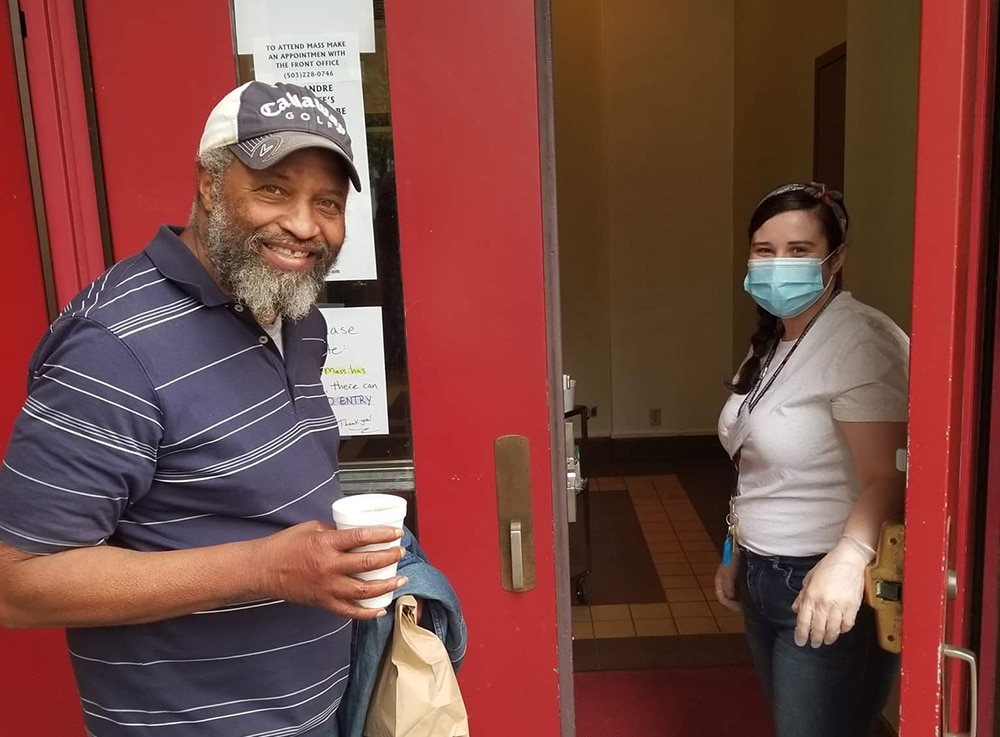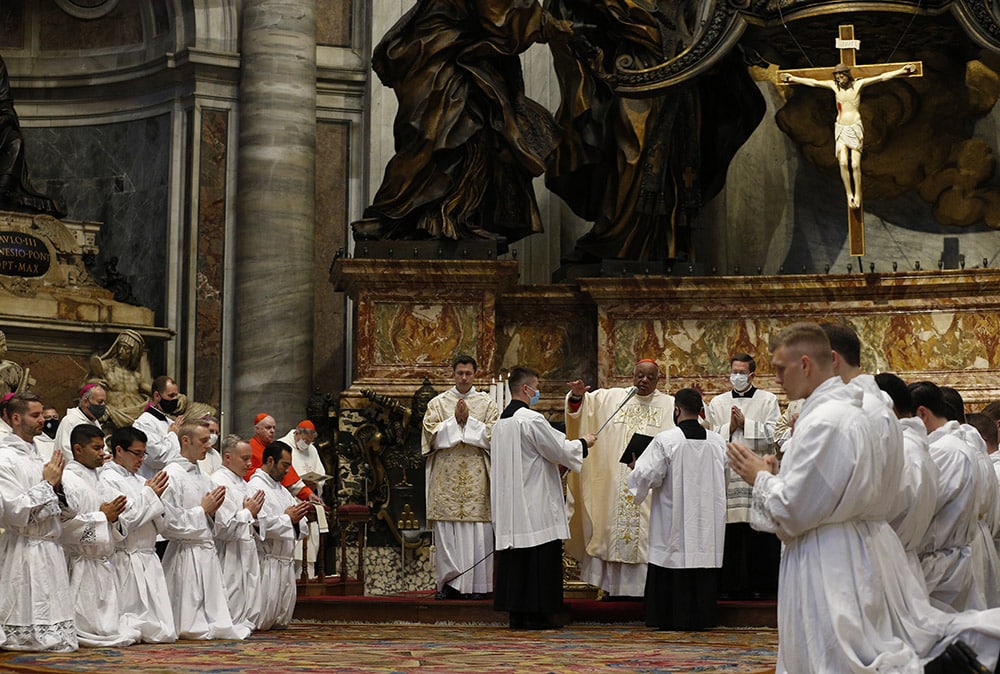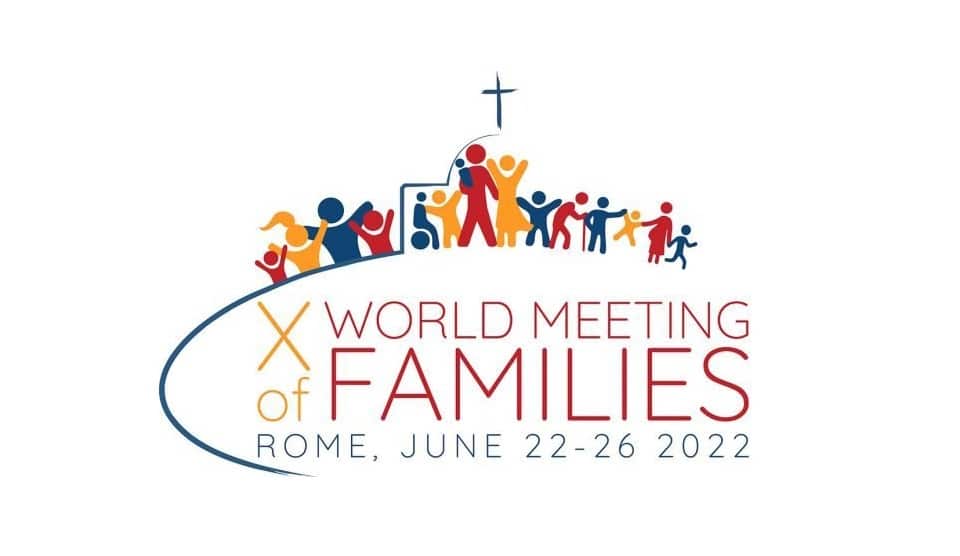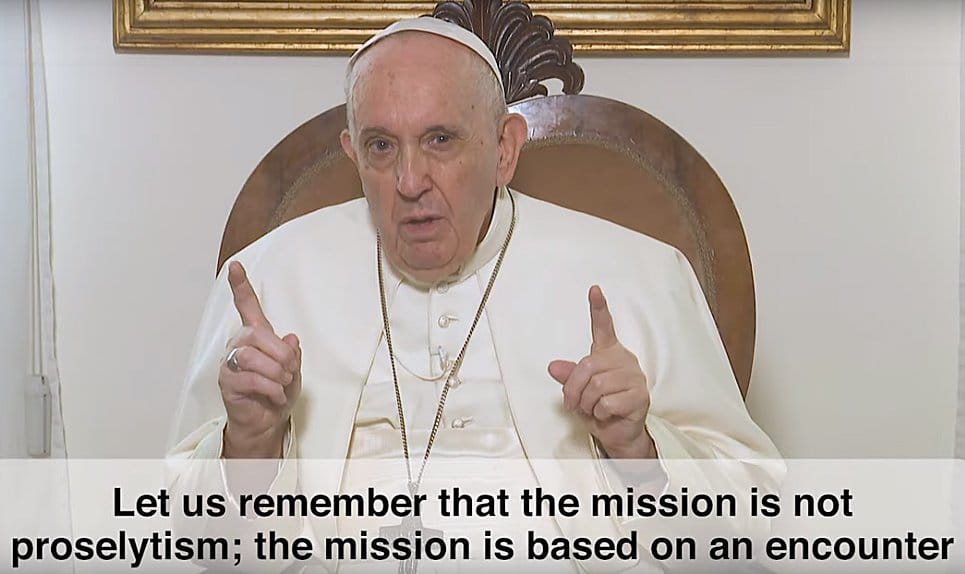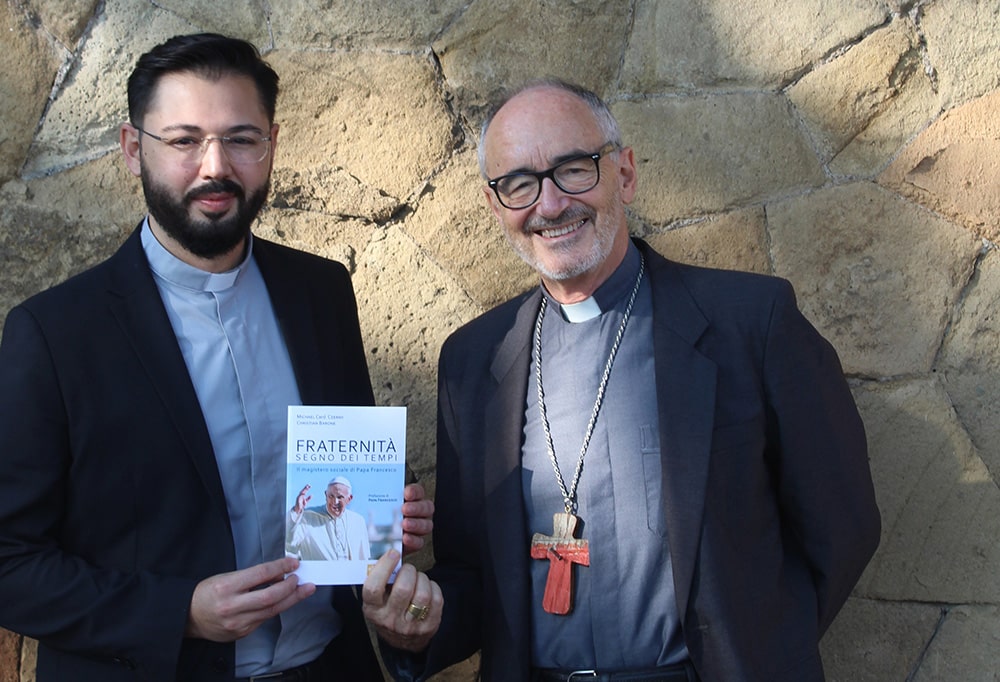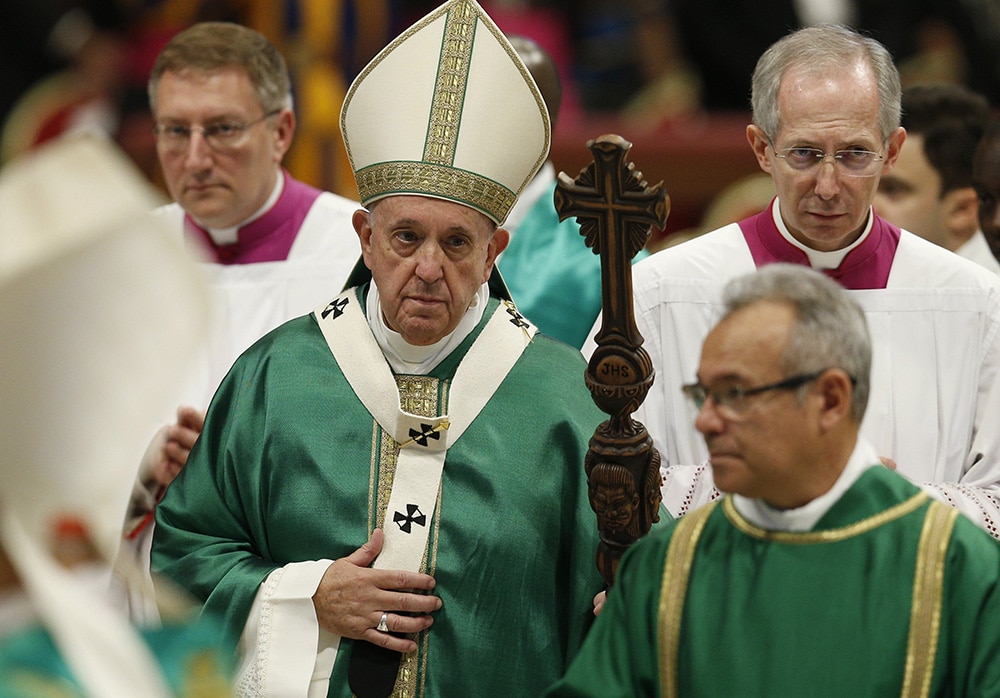The term “mercy” is often (and erroneously) reduced to some sort of mocking pity. In the Catholic tradition, mercy (misericordia in Latin) is the height of compassion, suffering with another, sharing the same affliction, in a sense. The corporal works of mercy are those that attend to the physical needs of others, including feeding the hungry.
All over the world, priests, deacons, and men and women religious live out the corporal works of mercy. For some orders, that is their primary charism and their sole apostolic work. For others, their primary efforts may be elsewhere, but they support a soup kitchen here, a food pantry there. Here are a few of the countless religious communities and apostolates whose work focuses on feeding the hungry.
Congregation of Holy Cross in Portland, Oregon
“Loving God by loving neighbor is, Jesus taught us, the fulfillment of the Law and the prophets,” said Father Tom Gaughan, CSC, pastor of St. Andre Bessette Catholic Church in Portland, Oregon. “As followers of Jesus Christ, we are all called to give as we have been given, and to do so without counting the cost.”
He continued, “I suppose, simply put, the importance of living the corporal works of mercy is about fulfilling the commandment that Jesus gave us: ‘Love one another as I have loved you.'”
Read more from our Fall Vocations Special Section here.
St. Andre Bessette is located in the middle of great poverty and human need in the Old Town/Chinatown neighborhood of Portland. “Our neighbors are quite literally the poor who live on the streets, in shelters and in low-income, subsidized housing,” Father Gaughan said. “I suppose one could cast a blind eye to the need (like the rich man in the story of Lazarus), or one can see the need and try to respond to those needs.”
The mission statement of the parish says it all: “We proclaim Christ’s healing compassion in downtown Portland. Through prayer and service, we welcome all people to nurture community, restore hope and share in God’s persistent love.” Father Gaughan explains how we are called to live this out: “As St. James wrote, it is not good enough to simply say ‘keep warm and well-fed,’ our faith requires of us to actually feed and clothe those in need” (cf. Jas 2:16).
Father Gaughan points out that there is “no neat metric to show the ‘impact’ on the poor in Old Town or any amount of ‘success’ as the world measures success.” But while food and clothing can be found in many places, St. Andre Bessette offers something more: “Because we are a church and are acting in the name of God, the Holy Spirit is powerfully at work here,” Father Gaughan said.
Because of COVID-19 and the attendant restrictions, the parish has not been able to offer the hospitality they have traditionally offered. But it has not stopped them completely, and they continue to serve the community as best they can.
During the height of restrictions, when no volunteers were able to help, the St. Andre staff (just five people at the time) decided to do something to serve the community, so they spent each afternoon making sandwiches to give out the next morning. Out of the blue, Central Catholic High School (in Portland) contacted St. Andre and offered to help. Since April 2020, the families of the high school have donated 500 sack lunches every week, which has allowed the parish to meet the needs of many more people than their small staff would have allowed.
“With this great assist, we have been able to offer sack lunches and a coffee or juice to our guests all throughout this pandemic!” Father Gaughan said. “Truly, every day feels like we are living out the miracle of the loaves and fishes!”
Franciscan Sisters of the Renewal in East Harlem, New York
The Franciscan Sisters of the Renewal were founded in 1988 as a parallel community to the Franciscan Friars of the Renewal, who were founded the year before. In the Capuchin tradition, these sisters aim to live the Gospel in its purest and simplest form, following the example of St. Francis of Assisi. This primarily takes the form of working with the poor. The order has communities in the United States, England and Ireland, but they were founded in New York, where the heart of their mission still lies.
“Our life being centered on the holy Eucharist, and centered on the Mass, gives us the impetus and the grace and the example for the corporal works of mercy,” said Mother Clare Matthiass, the community’s superior. “We attend Mass every day; we get to experience Our Lord’s self-gift, the Lord giving himself entirely to us, and then when we serve the poor, we get to give ourselves entirely to feeding the hungry, clothing the naked, visiting the sick, etc.”
One prime example of how the community lives the corporal works of mercy is through their soup kitchen at Our Lady Queen of Angels Convent in East Harlem, New York. Along with many volunteers and other associates, they run the Father Solanus Soup Kitchen, named after Blessed Solanus Casey, a Capuchin friar in Michigan who died in 1957 and was beatified in 2017. They provide sandwiches and coffee throughout the week and a hot lunch on Saturdays, when guests, sisters and volunteers can spend quality time while they break bread together.
There is more to feeding the hungry than simply providing them a meal. It is also about reminding them they have dignity, reminding them that they are loved, reminding them that they were made in the image and likeness of God, which gives them inherent dignity.
“The corporal works of mercy are our chance to learn to give ourselves as the Lord gives himself to us in the Eucharist,” Mother Clare said. “That’s the way I see the corporal works of mercy that we exercise in our lives.”
Paul Senz writes from Oklahoma.

